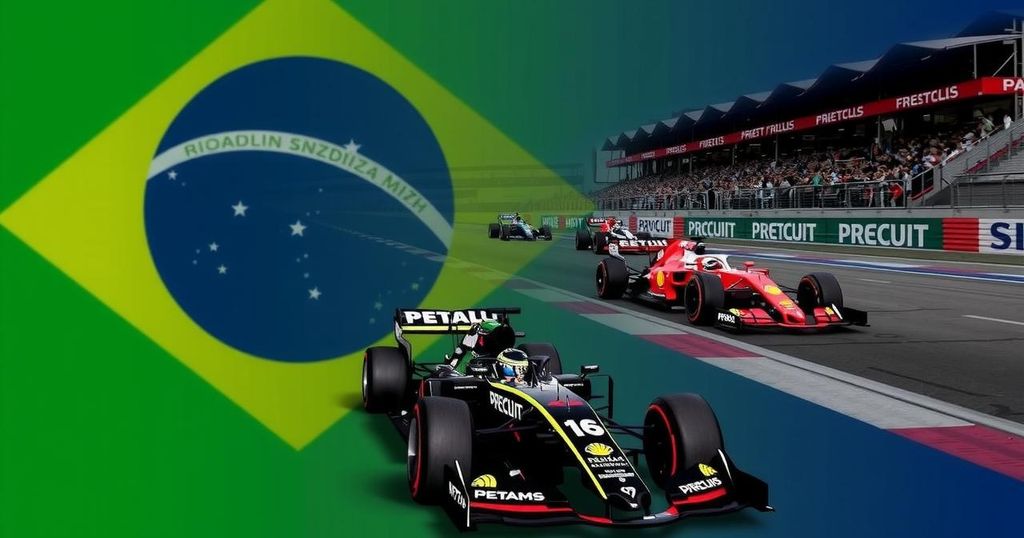Uncertain Future of F1 Broadcasting Deals in Brazil and the United States Ahead of Brazilian Grand Prix
As the Brazilian Grand Prix concludes the F1 Americas triple-header, the future of broadcasting deals in Brazil and the United States is uncertain. Brazilian network Band faces financial struggles while Globo prepares to reclaim rights, and ESPN contemplates future engagements amidst record viewership in America.
As the Formula 1 calendar wraps up its trio of races in the Americas with the Brazilian Grand Prix, concerns emerge regarding the future of television broadcasting deals in significant markets such as Brazil and the United States. Currently, contracts with broadcasters in both countries extend until 2025; however, uncertainties loom, particularly for Brazilian fans as local racing talent rises. The Brazilian Grand Prix follows a notable victory by Ferrari at the Mexican Grand Prix, amplifying excitement among audiences amid a tight competition for the world championship. At this juncture, Brazilian interest is piqued as promising driver Gabriel Bortoleto, who commands attention in the Formula 2 Championship, is in contention to secure a significant seat with Sauber. This potential development raises questions regarding Band’s broadcasting rights; the network, having renewed its agreement to carry Formula 1 races from 2023 to 2025, has reportedly encountered difficulties meeting its financial obligations. Additionally, Globo, Brazil’s largest television network, stands poised to reclaim F1 broadcasting rights after years of absence, potentially replacing Band post-2025. Reports indicate that an agreement for Globo to air 15 races on free-to-air television has already been settled, contingent upon resolving Band’s existing contract. In the United States, Formula 1 has experienced a surge in popularity, demonstrated by record viewership figures on ESPN, which has broadcast the series since 2018. ESPN recently renewed its agreement, substantially increasing its investment to approximately $90 million per year. With strong interest from American fans and a vibrant motorsport culture, the next round of broadcasting negotiations is anticipated to yield significant financial implications, as parties weigh their potential bids for the rights starting in 2026. This landscape presents a fascinating dynamic as various media entities assess the value of F1 and prepare for the potential bids to secure broadcasting rights moving forward.
This article discusses the television broadcasting landscape for Formula 1 in light of significant developments in Brazil and the United States. With two notable races recently concluded in the Americas, particularly the Brazilian Grand Prix, the future broadcasting rights are in flux. In Brazil, the incumbent broadcaster, Band, faces challenges in adhering to its contract terms while a rival broadcaster, Globo, moves to reclaim F1 rights after having previously aired the sport for many years. In the U.S., ESPN has seen rising viewership figures leading to substantial investments and negotiations for future broadcasting rights amidst increasing interest in the sport.
The Formula 1 broadcasting rights in Brazil and the United States face a pivotal moment as the 2025 horizon approaches. As Band grapples with financial obligations to maintain its role as the broadcaster, Globo appears ready to step in, potentially shaping the television landscape in Brazil. Meanwhile, the United States market is poised for a substantial update in broadcasting rights agreements, with heightened viewership making it an attractive territory for investment. The outcomes of these negotiations will undoubtedly influence F1’s accessibility and popularity in these key markets, reflecting the current dynamics of the sport’s global expansion.
Original Source: www.autosport.com




Post Comment